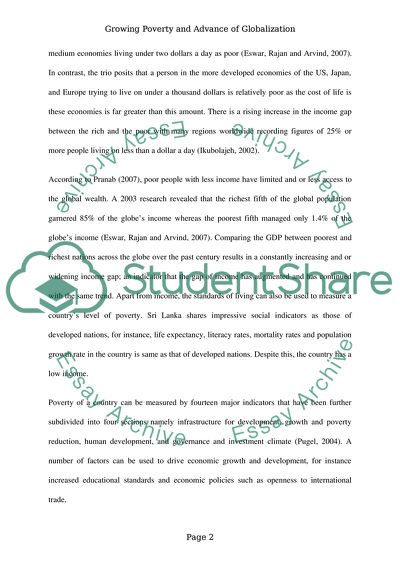Cite this document
(To what Extent can Growing Poverty be Blamed on the Advance of Globalisation Essay Example | Topics and Well Written Essays - 1750 words - 1, n.d.)
To what Extent can Growing Poverty be Blamed on the Advance of Globalisation Essay Example | Topics and Well Written Essays - 1750 words - 1. https://studentshare.org/history/1800588-to-what-extent-can-growing-poverty-be-blamed-on-the-advance-of-globalization
To what Extent can Growing Poverty be Blamed on the Advance of Globalisation Essay Example | Topics and Well Written Essays - 1750 words - 1. https://studentshare.org/history/1800588-to-what-extent-can-growing-poverty-be-blamed-on-the-advance-of-globalization
(To What Extent Can Growing Poverty Be Blamed on the Advance of Globalisation Essay Example | Topics and Well Written Essays - 1750 Words - 1)
To What Extent Can Growing Poverty Be Blamed on the Advance of Globalisation Essay Example | Topics and Well Written Essays - 1750 Words - 1. https://studentshare.org/history/1800588-to-what-extent-can-growing-poverty-be-blamed-on-the-advance-of-globalization.
To What Extent Can Growing Poverty Be Blamed on the Advance of Globalisation Essay Example | Topics and Well Written Essays - 1750 Words - 1. https://studentshare.org/history/1800588-to-what-extent-can-growing-poverty-be-blamed-on-the-advance-of-globalization.
“To What Extent Can Growing Poverty Be Blamed on the Advance of Globalisation Essay Example | Topics and Well Written Essays - 1750 Words - 1”. https://studentshare.org/history/1800588-to-what-extent-can-growing-poverty-be-blamed-on-the-advance-of-globalization.


